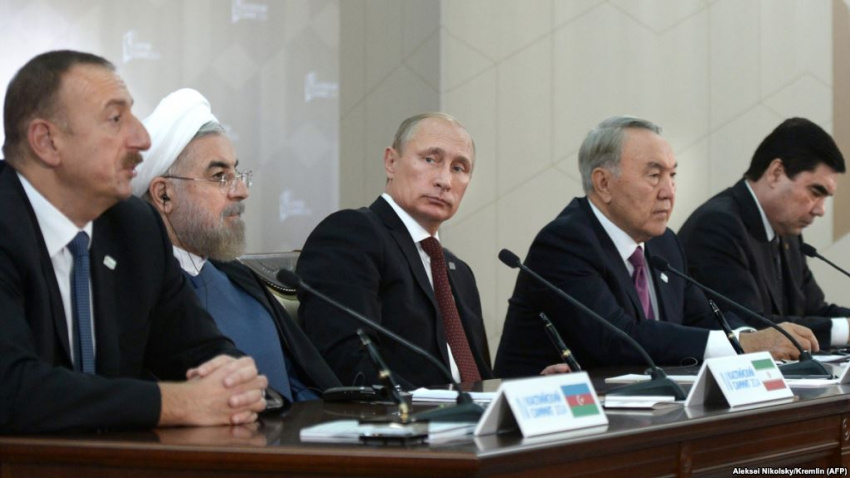“Iran has to be very careful in future negotiations on Caspian Sea”

Five Caspian Sea littoral states signed Caspian Sea Treaty on August 12, 2018 in Kazakhstan. The agreement has created many debates about the share of Iran in Iran.
To know more about the issue we reached out to Nader Entessar Professor Emeritus of Political Science in University of South Alabama.
Following is the full text of his interview:
There are many debates on the legal regime of the Caspian Sea. Some argue that according to the treaties of 1921 and 1940 between Iran and the USSR, the share of Iran equals to 50% of this sea. Is Iran’s share stipulated in those treaties?
No. Neither the 1921 nor the 1940 treaties specify that Iran and the USSR each share 50 per cent ownership of the Caspian Sea. Both of these treaties talk in general terms about the resources of the Caspian Sea being the used by Iran and the USSR without stipulating the exact ownership of the seabed, boundary delimitation, and other related issues. We have to remember that these two treaties were signed well before the United Nations Convention on the Law of the Sea (UNCLOS) was drafted and came into force. Therefore, the 1921 and 1940 treaties could not have foreseen the complex issues of maritime boundaries that were discussed in UNCLOS.
Based on the international law, what is the legal status of the Caspian Sea after the collapse of the USSR and the sharing of the Caspian Sea by the five littoral states? Some bring about the idea of 20% sharing? Is there any base for this idea in the international law?
The answer to this question depends on if the Caspian is defined as a "sea" or a "lake." If one classifies the Caspian as a lake, then according to international law its resources should be divided equally among the five riparian states. However, if the Caspian is designated as a sea, then the five littoral states should draw lines extending from their shores to the midway point with littoral neighbors. This explains why for many years Iran had insisted on defining the Caspian as a lake. However, it appears that the five littoral states agreed in Aktau that the Caspian is a sea. That is why some observers have argued that in the final delimitation agreement, Iran will end up getting not only about 13 per cent of the Caspian but also the saltiest and deepest part of it.
Is the share of each of the littoral states from the Caspian Sea defined in the convention signed on August 12 in Kazakhstan?
No, the text of the Caspian Sea Treaty signed on August 12, 2018 in Kazakhstan does not define the share of each of the littoral states. In so far as Iran is concerned, this issue will have to be determined in a future agreement with Azerbaijan and Turkmenistan. Iran has to be very careful in future negotiations with its two neighbors because the resulting boundary agreement will determine Iran's final Caspian share.
What is the main achievement of the Aktau Convention, signed on August 12 in Kazakhstan, in regards to the legal regime and status of the Caspian Sea?
Although some reports have referred to the Caspian Sea Convention as a "landmark agreement," I don't view this agreement as such. Its main achievement was that after more than 20 years of contentious diplomatic efforts, the five littoral states of the Caspian Sea finally agreed on a legal framework for sharing the resources of this significant body of water. There are some clear and specific agreements in the Convention. For example, all five littoral states agreed to 15 miles of sovereign waters, plus a further 10 nautical miles of fishing area. But the wording of the Convention remains vague in many parts of the document, thus delaying divisive decisions that have to be made in future negotiations.
Interview by Payman Yazdani
Source: Mehr News

